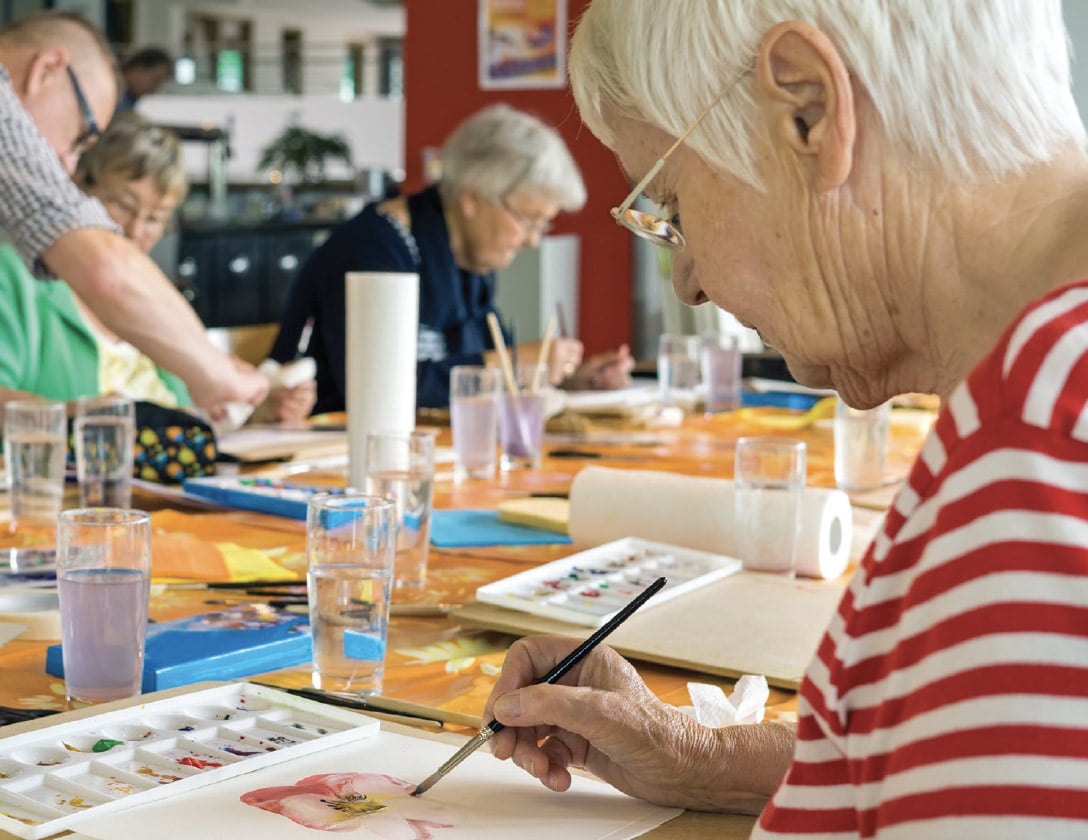Stress and fatigue can be significant challenges for people who provide care for seniors with dementia or serious physical limitations. It’s important, if you’re a caregiver, to care for yourself too. But in many situations, that’s easier said than done.
According to the National Alliance for Caregiving, about one in three family caregivers report having difficulty finding time to care for themselves, managing emotional and physical stress, and/or maintaining a work-life balance.
Today, let’s talk about some tips and resources caregivers in Cincinnati can use to cope with stress, stay focused and prevent empathy fatigue.
1. Network and talk with other caregivers
 There are many groups — both in-person and via online discussion boards — for caregivers to meet each other and provide mutual support. Participants share their experiences, provide advice to each other, serve as sounding boards for members of the group and tell each other about community resources that can help alleviate the burdens of care.
There are many groups — both in-person and via online discussion boards — for caregivers to meet each other and provide mutual support. Participants share their experiences, provide advice to each other, serve as sounding boards for members of the group and tell each other about community resources that can help alleviate the burdens of care.
The Caregiver Support Group here at Deupree House meets monthly. All caregivers from the community are welcome to attend, regardless of whether they have loved ones in residential care at our retirement community.
2. Bring in a part-time home health care provider
Although home health care can be expensive and out-of-pocket, Medicare and Medicaid will, under certain conditions, cover services that help elderly people age in place.
Maybe you need a patient care assistant to be present during the day while you go to work or run daily errands. If your older loved one requires close medical monitoring, you could hire an in-home nurse to come into your home during the day.
If you’re spending a lot of time taking your relative back and forth to physical or occupational therapy appointments, you might discuss the feasibility of in-home therapy services with your loved one’s primary care doctor. If therapy can be safely and effectively provided in your home by a licensed provider, you might be able to free up a lot of personal time.
3. Arrange for respite care
Respite care services allow caregivers to place their older loved ones in temporary (typically two weeks or less) residential nursing care, which in turn frees caregivers to take extended time off. Many caregivers use respite care services when they need to go out of town on business or when they want to take a personal vacation.
CAREGIVER TIPS: How Dementia Caregivers
Can Take Care of Themselves, Too.
The National Respite Network may be able to refer you to respite care programs in the Cincinnati area. You might also check into enrolling your older loved one in an adult daycare program.
Adult daycare programs provide a safe, enriching environment where seniors can socialize and have their medical and emotional needs looked after, allowing their primary family caregivers to go to work or otherwise have a few hours to themselves.
The National Adult Day Services Association or the Council on Aging of Southwestern Ohio can provide you with information about adult day care services in the Cincinnati area.
4. Attend an event for caregivers at Marjorie P. Lee
The impact on caregivers can be tremendous. Many are devoting more than 20 hours per week to the care of their loved ones. Trying to manage work and family alongside caring for a loved one, it's no wonder that nearly half of these caregivers admit to feeling stressed and burned out.
Caregivers in Cincinnati have the unique opportunity to attend special events designed to help them learn coping skills and network with others providing full-time care. See what we have planned for caregivers and their loved ones to have a day out with some enriching activities.

If you’re a family caregiver, prioritize your self-care
It’s important that you take care of your own physical, mental and spiritual health to take care of your loved one. Get additional tips by downloading our Guide for Caregivers. We hope you will prioritize your own self-care to stay refreshed and cope with the stress of looking after those you care most about.
This blog was originally published in 2017; it was updated in 2022.














